Rising Above the Field
Celebrating some of Ohio State’s most revered Buckeye athletes for their contributions off the field
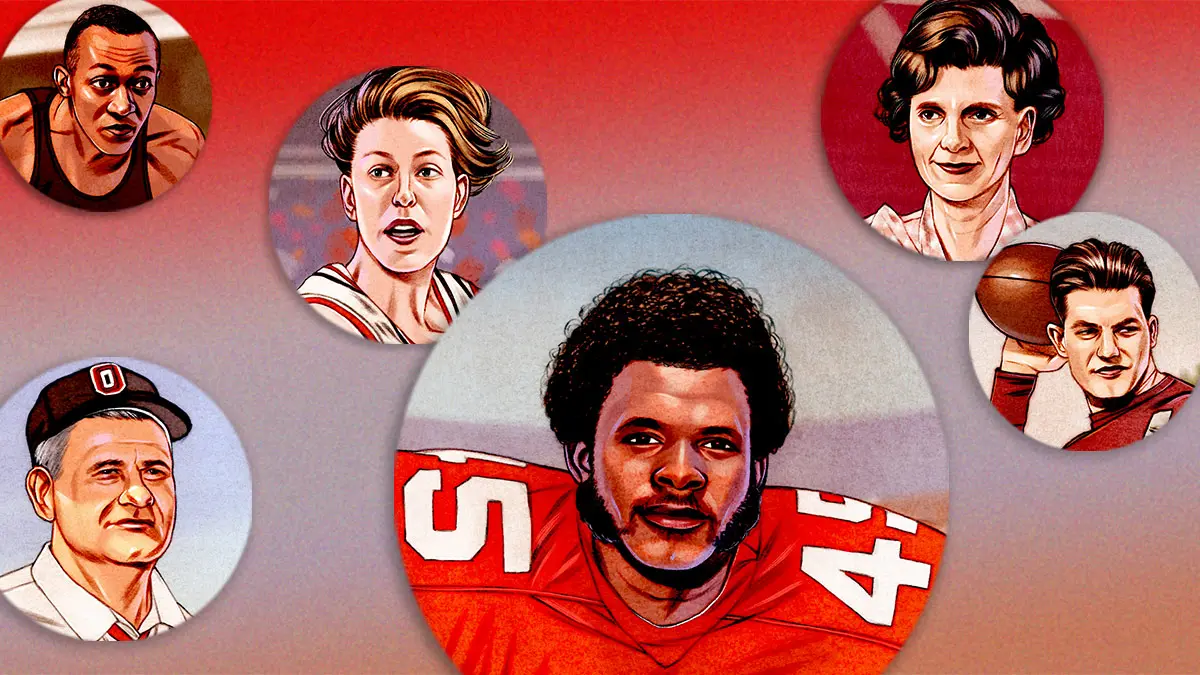
Since Ohio State’s earliest days, Buckeyes have gathered not just to admire athletes’ speed and agility but to be inspired by humans’ innate drive to come together to confront adversity and overcome the odds. On fields and in stadiums, athletes and coaches have delivered a kaleidoscope of thrilling moments that remain frozen in time, many on fall football Saturdays with 100,000 fans packed into Ohio Stadium. We share pride in their toil and their achievements — and we celebrate the character of exceptional athletes and leaders whose actions transcend sport.
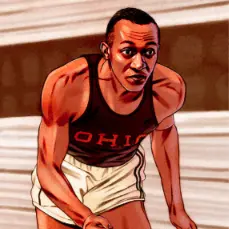
Few athletes have faced more pressure than Jesse Owens at the 1936 Berlin Olympics. Two months earlier, he wore an Ohio State track and field uniform, as he did the year before while setting three world records and tying another at the Big Ten championships. A grandson of slaves, Owens succeeded despite university policies that prohibited him from living on campus. Now, he was in a Berlin stadium competing in the presence of German chancellor Adolf Hitler, who portrayed blacks as “non-humans.” The Buckeye refused to buckle. Instead, Owens won four Olympic gold medals, gaining immortality by shattering Hitler’s idea of Aryan superiority.
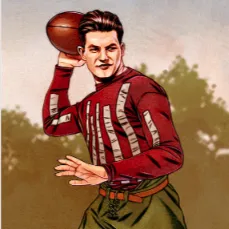
You couldn’t help but stare at Chic Harley when he blazed across the turf, football in hand. James Thurber, his Ohio State schoolmate and later a famous journalist, wrote that the Buckeye ran like “a cross between music and cannon fire, and it brought your heart up under your ears.” So many people wanted to watch Harley, the school’s first three-time All-American, that there wasn’t enough room at Ohio Field to meet demand. On the day after his final game in 1919, the university’s Board of Trustees signed a resolution to build Ohio Stadium. Harley ignited Buckeyes’ imagination of what Ohio State football could be.
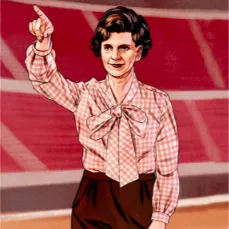
No cultural barrier in women’s collegiate athletics could withstand the pioneering spirit and persistence of Phyllis Bailey. Her path began in 1956 as Ohio State’s first women’s basketball coach, and her trail widened over the next four decades to benefit women in all sports. Besides coaching, Bailey served the university as an instructor, advisor and administrator. She spent her final 20 years at Ohio State as assistant athletics director, never wavering as a driving force in establishing the acceptance, growth and equality of women’s collegiate sports. Her work had an impact on Buckeyes and the entire nation.
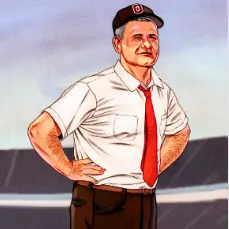
Two days before he died in March 1987, an ailing Woody Hayes traveled 75 miles from Columbus to Dayton, Ohio, to introduce a luncheon guest of honor: Michigan football coach Bo Schembechler. In Woody’s world, even a respected nemesis was worthy of a good deed. Hayes set Ohio State’s standard of success with barbed toughness over 28 seasons, yet the irascible coach saw life in big terms, woven by small acts of kindness. He implored all Buckeyes to act on behalf of others. “You win with people,” Hayes often said, and he wasn’t just talking about a stadium scoreboard.
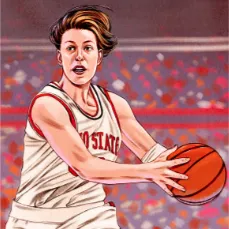
Her passport has stamps from around the world, a testament to a Hall of Fame basketball career unmatched by any Buckeye. Still, Katie Smith’s heart has never left home. She’s remained rooted in her hometown of Logan, Ohio, in her adopted home of Columbus and in the Ohio State community. She learned the importance of relationships in college, and she has since nurtured her connection to coaches, teammates, students, professors and all Buckeyes. She’s a superstar, winner of three Olympic gold medals and four pro championships, but everyone knows her simply as Katie, a friend to all.
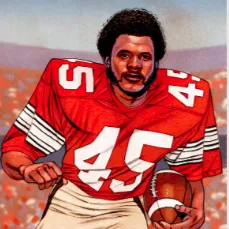
The phrase “only two-time Heisman Trophy winner” is practically part of Archie Griffin’s name. Yet Griffin always has credited his Buckeye coaches and teammates for helping him earn college football’s top honor in 1974 and ’75. His selflessness reveals the true Buckeye, an amicable university ambassador who thinks of others first. Archie’s time is your time — for autographs, leadership advice or good causes. Each year, about five Ohio State athletes benefit from the Archie Griffin Endowment Fund for Olympic Sports, which has raised more than $2.5 million since 2002. He lives the motto: Pay forward.



